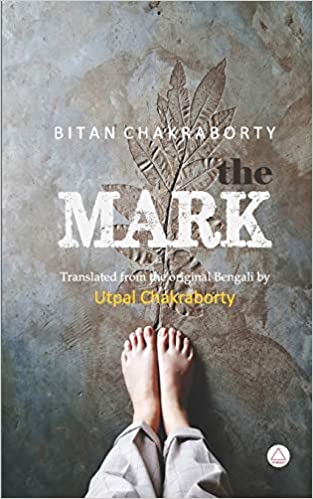‘Storytelling reveals meaning without committing the error of defining it.’—Hannah Arendt
Perhaps the greatest achievement of Bitan Chakaborty’s collection of short stories The Mark (Chinha–in Bengali) is that it reveals meaning without committing the error of defining it.
This anthology of seven short stories reads like a book of actual happenings to real persons. The protagonists are drawn from the people we see around us daily. The couple with their scattered belongings struggling to get out of a crowded local, the driver of an ambulance begging for a way forward through the jarring cacophony of a musical programme blocking the road, the young girl fighting to save the home of a domestic help, the tuition teacher hurt at the lack of acknowledgement from her brilliant student. Each story in Bitan Chakraborty’s collection opens a window into the lives of familiar people.
The themes are varied–poverty, of course; but also incompleteness in a way not often explored, guilt, escapism, scarcity, urban crowding and displacement which is perhaps the only theme that finds repetition, the insensitivity of a large city and the threat of political and mafia oppression, as well as a touch of the supernatural.

